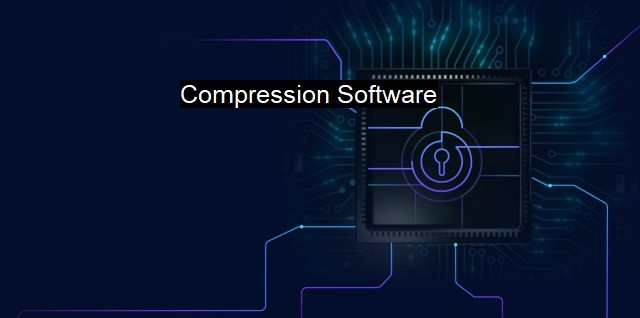What is Compression Software?
The Importance of Compression Software in Today's Digital World and Its Relation to Cybersecurity
Compression software refers to programs used in reducing the size of computer data, files, or software. The system operates by encoding the data into fewer bits than the original by the use of specific encoding schemes. It is a program that allows the users to compress data to create extra storage space and enable the data’s easy transfer between diverse entities. In other words, it aids in converting files or data into a format that occupies less space on a disk.There exist two main types of compression: lossless and lossy. While lossless compression ensures that the data returns to its original form when uncompressed, lossy compression might reduce the file quality as some data gets lost during compression and is not recoverable. This typically applies to media files, such as audio or video, where minor quality loss is usually acceptable.
From a cybersecurity aspect, compression software can either be an asset or a liability. On the positive side, compressed files take up less storage, reducing the space an attacker could hide malicious software. Smaller files also transfer more quickly across networks, reducing the window of vulnerability when transferring data.
Compression software can also be used for malicious purposes. Cybercriminals can use it to shrink the size of their malware, causing it to slip past cybersecurity defenses more easily. Often, compressed malware files would not be recognized by traditional antivirus software, especially if the malware is new or not widely recognized. This is due to the concept called zero-day attacks, wherein the attack or threat is unknown to the cybersecurity community, hence no official patch or solution is available for it.
Attackers can use powerful compression software to create a multipart compressed archive, also known as a volume. Volumes can be separated and sent in parts, and then reassembled at their destination. Because they’re dispersed, these attack vectors can often avoid detection entirely.
Antivirus software programs have started recognizing these threats and now feature decompression capabilities allowing for scanning at that level. They can scan incoming compressed files for any detected inconsistencies or for the markers of compression software popular with attackers.
Some sophisticated antivirus programs are now updated frequently to ‘know’ about existing bugs and keep up with new ones constantly identified. This advanced software now is capable of catching compressed malware, helping to secure the digital landscape better.
Relying on antivirus software scans is not ideal as some compressed malware can self-extract and execute once accessed by the user. Therefore, user behavior plays an important role in infection event and thus should be educated about the risks of accessing unfamiliar compressed files.
While compression software presents numerous advantages, including saving space and facilitating faster data transfers, it can be a potential cybersecurity risk. The encoding nature of compression can be exploited to deliver harmful payloads or install intrusive software. As such, modern antivirus programs have adapted to these risks by evolving their detection capabilities. Nonetheless, the use of compression software requires care and continued vigilance, underscoring the importance of regular software updates and user awareness initiatives.

Compression Software FAQs
What is compression software, and how does it work to improve cybersecurity and antivirus protection?
Compression software is a program that reduces the size of files, making it easier to store and transfer them. This can help improve cybersecurity and antivirus protection by making it easier to scan and protect files, as well as reducing the risk of data breaches during transfers.What are some common types of compression software available for cybersecurity and antivirus purposes?
Some common types of compression software are WinZip, 7-Zip, WinRAR, and PeaZip. These software programs can be used to compress and protect files across a variety of platforms and operating systems.What are some benefits of using compression software for cybersecurity and antivirus protection?
Using compression software can provide several benefits for cybersecurity and antivirus protection, including reducing file sizes for more efficient storage, making it easier to transfer files securely, and providing an additional layer of protection against potential data breaches. Compression software can also help improve system performance by reducing the amount of space needed to store and access files.What should I look for when choosing a compression software for my cybersecurity and antivirus needs?
When choosing a compression software for cybersecurity and antivirus purposes, it's important to consider factors such as compatibility with your operating system, the level of security features provided, ease of use, and overall functionality. Additionally, be sure to read reviews and compare prices to find the best software for your specific needs and budget.| | A | | | B | | | C | | | D | | | E | | | F | | | G | | | H | | | I | | | J | | | K | | | L | | | M | |
| | N | | | O | | | P | | | Q | | | R | | | S | | | T | | | U | | | V | | | W | | | X | | | Y | | | Z | |
| | 1 | | | 2 | | | 3 | | | 4 | | | 7 | | | 8 | | |||||||